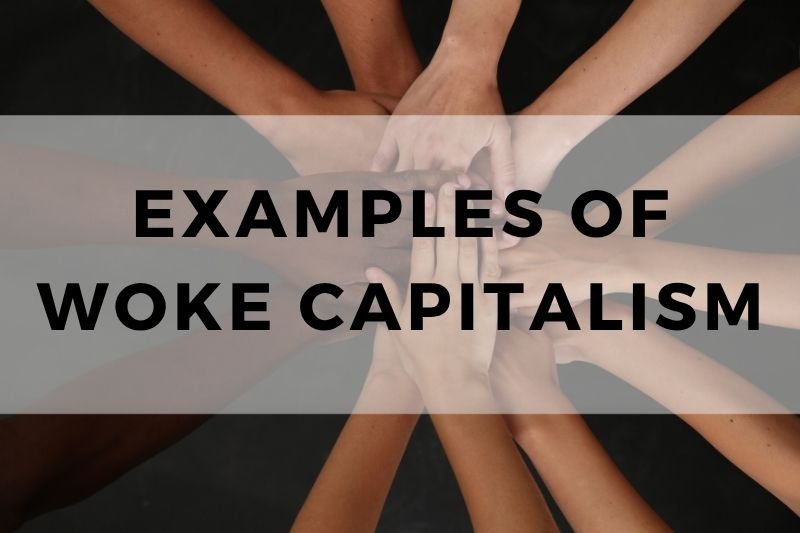
Can a corporation truly care about social justice—or is it all just marketing? In recent years, companies have increasingly embraced political and cultural causes, from racial equity to LGBTQ+ rights, often aligning their brands with progressive ideals. This trend, known as woke capitalism, sparks heated debates across the political spectrum. Critics argue it’s virtue signaling for profit, while supporters see it as a step toward accountability and inclusion. But what happens when these gestures clash with a company’s actions or alienate their customer base? Let’s explore seven provocative examples of woke capitalism that reveal the tension between ideals and incentives.
Provocative Examples of Woke Capitalism
#1. Nike’s Colin Kaepernick Campaign
In 2018, Nike launched an ad campaign featuring Colin Kaepernick, the former NFL quarterback who kneeled during the national anthem to protest police brutality. The campaign’s tagline, “Believe in something. Even if it means sacrificing everything,” sparked national attention and backlash. Many conservatives called for boycotts, burning Nike products in protest. Nike embraced social justice to strengthen brand loyalty with younger, progressive consumers. Despite controversy, sales surged shortly after the ad aired, signaling the power of polarizing alignment. However, critics noted the contradiction between Nike’s activism and its history of labor issues overseas. The campaign became a landmark moment in how brands take sides in polarizing debates.
#2. Bud Light’s Dylan Mulvaney Controversy
In 2023, Bud Light partnered with transgender influencer Dylan Mulvaney for a promotional campaign. The move was intended to appeal to a more diverse audience, but it triggered intense backlash from conservative customers. Sales dropped sharply, and the brand faced boycotts and negative press. Bud Light’s attempt to embrace inclusivity backfired due to poor audience alignment and inconsistent messaging. While the company later tried to walk back the campaign, the damage had already been done. This case shows the risks when corporations support progressive causes without considering their core customer base. It became a cautionary tale of how brand activism can clash with market realities.
#3. Disney’s LGBTQ+ Representation and Policy Stances
Disney has increasingly included LGBTQ+ characters and storylines in its films and publicly opposed Florida’s “Don’t Say Gay” law in 2022. The company’s stance received praise from progressive groups but angered conservative politicians and parents. Florida Governor Ron DeSantis retaliated by targeting Disney’s special tax district. Disney’s political involvement placed it at the center of America’s culture wars, exposing vulnerabilities in corporate activism. While some applauded the company’s commitment to inclusivity, others accused it of pandering for profit. This example illustrates the balancing act companies face when supporting social causes—especially when their content targets both children and adults across political lines.
#4. Ben & Jerry’s Progressive Advocacy
Ben & Jerry’s has long been vocal about social and political issues, including climate change, racial justice, and anti-militarism. The brand issues public statements and often ties its messaging directly to its products. On July 4, 2023, it criticized U.S. history and called for the return of “stolen Indigenous land.” Ben & Jerry’s uses its brand as a direct platform for leftist activism, making no effort to appear neutral. While the strategy strengthens loyalty among progressive consumers, it alienates others and risks political retaliation. The company’s bold positions raise questions about whether brands should play such a central role in shaping political narratives.
#5. Target’s Pride Merchandise and Store Displays
Target expanded its Pride-themed merchandise in recent years, including children’s clothing and displays in stores nationwide. In 2023, this effort triggered strong backlash, especially on social media, leading to store disruptions and product pullbacks. Target’s inclusive marketing sparked a cultural firestorm, forcing the brand into reactive damage control. The company moved some merchandise to the back of stores and reduced its Pride campaign’s visibility, which drew criticism from both conservatives and LGBTQ+ advocates. This example reveals how difficult it is for companies to navigate highly charged social issues without alienating either side of the debate or appearing insincere.
#6. BlackRock’s ESG Investment Strategy
BlackRock, one of the world’s largest asset managers, has championed ESG (Environmental, Social, and Governance) investing. CEO Larry Fink emphasized stakeholder capitalism and long-term sustainability in annual letters. This led to conservative backlash, including divestment by red-state governments and accusations of “woke investing.” BlackRock’s ESG strategy redefined corporate priorities, but exposed it to fierce ideological resistance. Critics argue the firm prioritizes politics over profits, while supporters say it’s promoting responsible capitalism. The controversy underscores the risks of institutional activism in finance, especially when dealing with publicly managed funds or clients with differing values. BlackRock became a symbol of capitalism’s ideological evolution.
#7. Amazon’s Statements on Social Justice Amid Workplace Issues
Amazon publicly supported the Black Lives Matter movement and racial equity initiatives. It made donations and statements promoting diversity and inclusion. Yet, the company faced allegations of union-busting, unsafe warehouse conditions, and disproportionate impacts on minority workers. Amazon’s woke messaging clashed with its internal labor practices, revealing a gap between words and actions. Critics accuse Amazon of using social causes as a PR shield while ignoring employee well-being. This contradiction highlights how easily corporate activism can appear performative when not backed by meaningful change. Amazon’s example illustrates the importance of consistency between public values and internal operations.
Closing Thoughts
Woke capitalism continues to provoke intense reactions because it sits at the crossroads of business, politics, and culture. As companies increasingly take stances on divisive issues, the line between genuine advocacy and calculated branding becomes harder to define. Some audiences applaud these efforts, while others see them as disingenuous or alienating. What’s clear is that public expectations are shifting, and silence is no longer a safe option for major brands. Whether this trend drives meaningful change or remains a marketing strategy disguised as morality, its impact on consumer trust, corporate responsibility, and political discourse is undeniable and ongoing.
